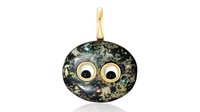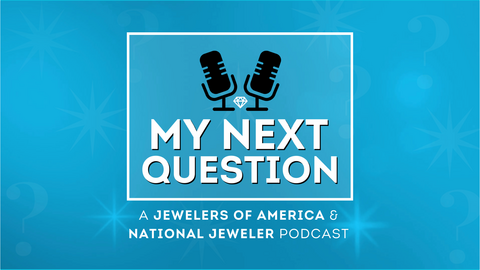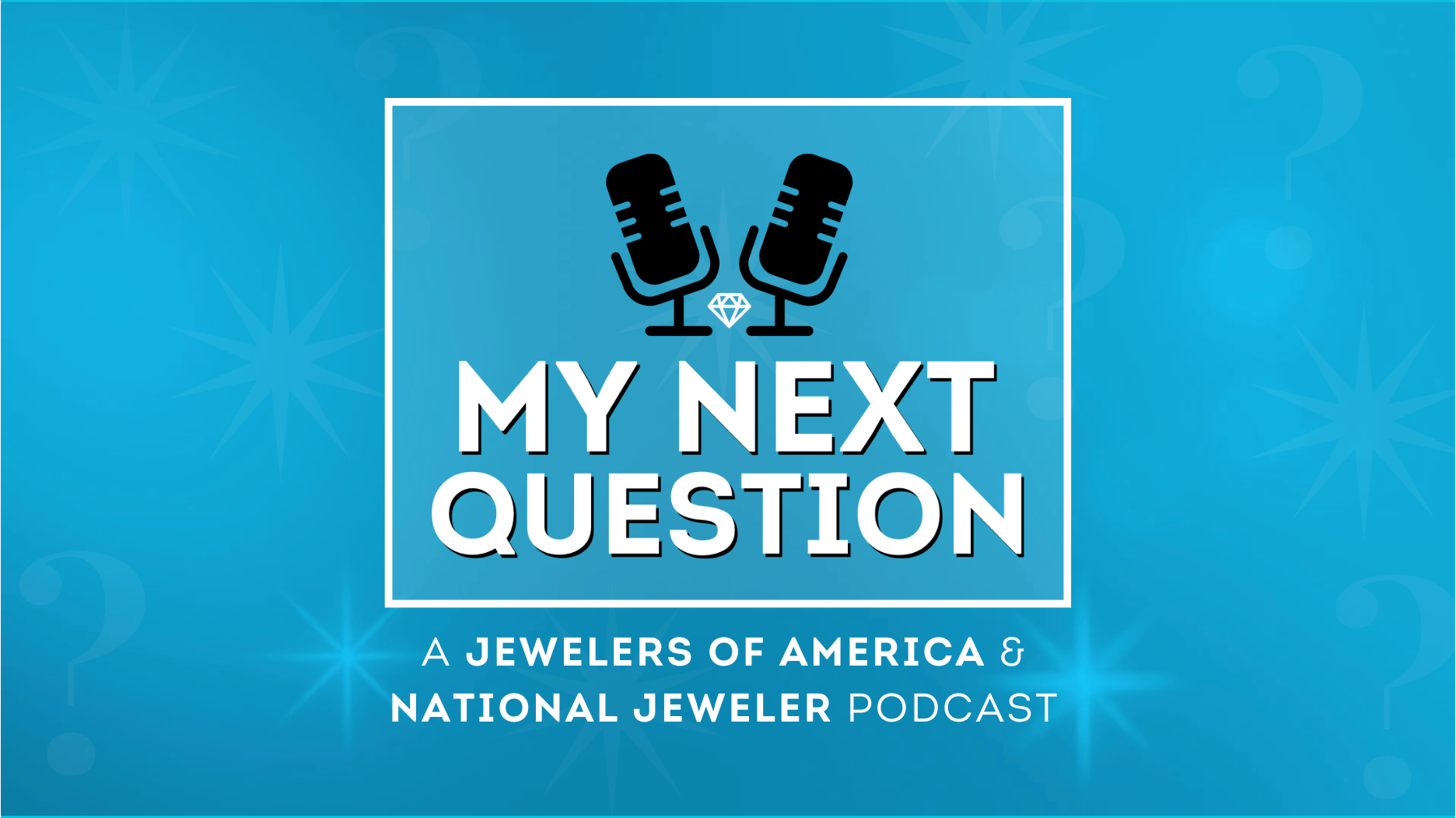In a market defined by more selective consumers, Sherry Smith shares why execution will be independent jewelers’ key to growth this year.
3 ‘Women Who Rock’ Share Their Keys to Success
Jewelry designers Judith Ripka, Robin Renzi and Monica Rich Kosann on consignment, balancing work and family, and Hillary Clinton.

New York--There was a decidedly supportive vibe at the 92nd Street Y’s Women Who Rock panel last Tuesday, organized by the Accessories Council and moderated by InStyle and StyleWatch Editorial Director Ariel Foxman.
Judith Ripka, Robin Renzi of Me&Ro and Monica Rich Kosann were on hand to discuss how they have successfully navigated the jewelry industry and to give advice to other entrepreneurs.
For an idea of just how genuinely well-intentioned their tips were, when an audience member asked for advice on finding good production in New York, the designers offered to give her their personal contacts.
Read on for the highlights of the evening.
On dealing with copycats:
Monica Rich Kosann: At some point it’s flattering. I might be doing something special if someone is trying to knock me off.
Judith Ripka: After a while it becomes a little tiresome, so you have to protect your brand. You have to go after them. However, one year, nobody copied me and I was depressed.
“One year, nobody copied me and I was depressed.” - Judith RipkaOn creativity:
Kosann: I sometimes wake up in the middle of the night with all of these ideas. Our business is so much fun. It’s a happy business and it’s all about creating and being creative.
Robin Renzi: You can’t beat [your creativity], you have to allow yourself to get in that state where your ideas can come to you and flow.
On the relationship between brick-and-mortar retail and e-commerce:
Kosann: I think they help each other. I’ve been in a store so many times when a customer comes in and says, “Oh, I researched this online,” and knows exactly what they want and vice versa.
We started our e-commerce a long time ago; I think we were maybe one of the first. We have a very high-touch culture, so we treat someone who is buying a $100 piece or a $10,000 piece the same way. They get the same packaging, the same treatment, they get a beautiful box, it gets wrapped beautifully, and they get a hand-written thank-you note.
I think high-touch is really the way that it has to be. You have to make it so that when the customer is online, it almost feels like they’re in the store.
“You have to make it so that when the customer is online, it almost feels like they’re in the store.” - Monica Rich KosannRipka:
With jewelry you know that you want it, and you can live in an area where there’s no jewelry store that carries a certain brand, so you go online and you look at it and get excited because pieces of jewelry are exciting. My online business has become very important. I think it’s the sign of the future for all of us.
Renzi: I had four stores, I was doing huge business in retail but it’s just not the same as it was. I don’t know what retail is going to turn into. I still have my lovely little store on Elizabeth Street, 16 years, that’s my little gem. It doesn’t make nearly as much as it used to. It’s all shifted to the website. I’ve had a website for 18 years at least, because years ago when we were in so many magazines, all of these little girls would call up with their mother’s credit cards.
We used to be in all of the department stores. I’m not in any anymore, I’m pretty independent; I just do my own retail and a few specialty stores. I used to do humongous collections when I was in the department stores and now I do smaller but people want more and they want freshness.
Before the market crashed it was very easy business and now it switched so that we sort of need to give [the customer] more of what you’re looking for. It used to be that we the designers were in control and now the consumer is.
“It used to be that we the designers were in control and now the consumer is.” - Robin RenziOn the importance of celebrity and editorial placements:
Ripka: We were one of Oprah’s picks one year and our lines went down, we weren’t prepared for the thousands and thousands of people. I think it’s still relevant to advertise and I think it’s very important to have your jewelry on celebrities as much as you can.
Kosann: We do a lot of advertising in the national magazines, which has been great for establishing a customer who is 25 to 35 years old or 40 years old. I think that’s very important. I feel very lucky that the press has been so amazing with putting our jewelry on amazing stars.
It’s also great when you see [a celebrity] who wears your jewelry that you didn’t gift or you didn’t plan and, all of a sudden, you see someone wearing that piece on the red carpet or on the cover of a magazine, but to me my stars are really my customers. I love when they rock the jewelry; I still think they are really, really important.
Renzi: With most of the red carpet now [celebrities] are being paid to wear the jewelry. I don’t think you need to have celebrities to do what you love and make a business. Does it help? Absolutely. But only if it’s an authentic relationship because quite honestly if you go after it, it can take your soul.
“I don’t think you need to have celebrities to do what you love and make a business.” - Robin RenziOn balancing family and a career as your own boss:
Ripka: On some days it might have been a family-friendly choice, on others it wasn’t. You have to love what you do, you have to be very organized at home, and you have to pray that [your children] were athletes so they wouldn’t come home from school at 3.
I look back and I think to myself, “I wonder if it would have been different if I hadn’t worked?” There’s always that question but it’s very fulfilling and I think it helped [my children] go out into the world and fulfill themselves in other ways.
On Hillary Clinton:
Ripka: Many years ago I was talking to a friend of mine who lived in Washington and she said to me, “Why don’t you make a piece of jewelry for Hillary Clinton?” and I said, “I don’t know her,” and she said, “It doesn’t matter, we’ll get it done, make the piece.”
Her husband hand-delivered it to the White House. We didn’t know until that morning but she wore it to [Bill Clinton’s] inauguration. Advertising yourself is about creativity. You need to become creative in all parts of your business.
“Advertising yourself is about creativity. You need to become creative in all parts of your business.” - Judith RipkaOn not taking no for an answer:
Kosann: When I started at Bergdorf’s, I approached them and they told me no. I said, “I’m not taking no for an answer.” When we went to our first trade show we knew nobody. I used to wait in the coffee line and look at people’s badges and try to strike up a conversation (about their store.) We’re artists. We have to have a tough skin. You can’t be afraid for someone to say no.
On supporting employees going out on their own:
Ripka: We had two lovely young women working for us for many years and they learned the business from soup to nuts. They are now in the magazines all the time; they went out on their own, Jemma Wynne, you might have seen them in a magazine, so it does happen. They worked very hard to get where they are today. You have to work hard and you have to believe in yourself.
On the consignment debate:
Renzi: Gold is very expensive so you have to have a lot of money behind you. And if you don’t then the creativity of the world is going to be oppressed. It can work, I’ve done consignment. I grew my business in 18-karat, no consignment and one day it was consignment. That’s what it is right now, maybe it will change but you can’t put your company at risk.
“[Consignment] is dangerous unless you are a trust-fund child.” - Judith RipkaRipka: One time I did a lot of consignment with Neiman’s but they had a different situation--they would give you money in your bank account to do consignment. In 2008 they stopped doing that, but it worked for a very long time.
But I would say don’t be tempted to do consignment, especially (if you have) a very young business, unless you have the money to do it. You can build your business doing it that way and get branded being in all the top stores because they all want consignment today; nobody wants to spend the money. But it’s dangerous unless you are a trust-fund child.
The Latest
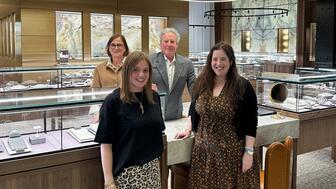
The family-owned jeweler’s new space is in a former wholesale produce market.

Ivel Sanchez Rivera, 52, has been arrested and charged in connection with the armed robbery of Tio Jewelers in Cape Coral, Florida.

Criminals are using cell jammers to disable alarms, but new technology like JamAlert™ can stop them.

The supplier’s online program allows customers to search and buy calibrated natural and lab-grown diamond melee, including in fancy shapes.


The new show will take place Jan. 23-25, 2026.

Associate Editor Natalie Francisco highlights her favorite jewelry moments from the Golden Globes, and they are (mostly) white hot.

How Jewelers of America’s 20 Under 40 are leading to ensure a brighter future for the jewelry industry.

Yantzer is remembered for the profound influence he had on diamond cut grading as well as his contagious smile and quick wit.

The store closures are part of the retailer’s “Bold New Chapter” turnaround plan.

Through EventGuard, the company will offer event liability and cancellation insurance, including wedding coverage.

Chris Blakeslee has experience at Athleta and Alo Yoga. Kendra Scott will remain on board as executive chair and chief visionary officer.

The credit card companies’ surveys examined where consumers shopped, what they bought, and what they valued this holiday season.

Kimberly Miller has been promoted to the role.
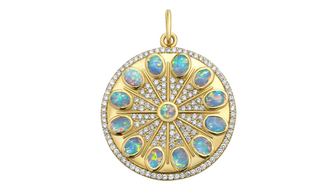
The “Serenity” charm set with 13 opals is a modern amulet offering protection, guidance, and intention, the brand said.

“Bridgerton” actresses Hannah Dodd and Claudia Jessie star in the brand’s “Rules to Love By” campaign.

Founded by jeweler and sculptor Ana Khouri, the brand is “expanding the boundaries of what high jewelry can be.”
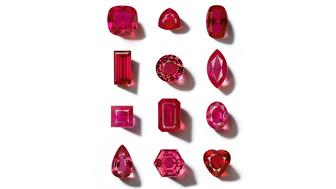
The jewelry manufacturer and supplier is going with a fiery shade it says symbolizes power and transformation.

The singer-songwriter will make her debut as the French luxury brand’s new ambassador in a campaign for its “Coco Crush” jewelry line.

The nonprofit’s new president and CEO, Annie Doresca, also began her role this month.

As the shopping mall model evolves and online retail grows, Smith shares his predictions for the future of physical stores.
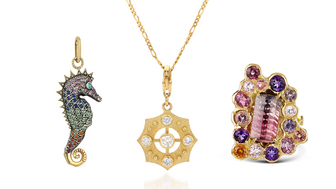
The trade show is slated for Jan. 31-Feb. 2 at The Lighthouse in New York City's Chelsea neighborhood.
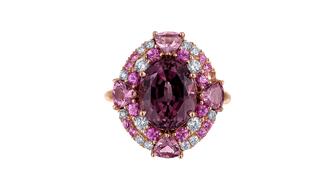
January’s birthstone comes in a rainbow of colors, from the traditional red to orange, purple, and green.
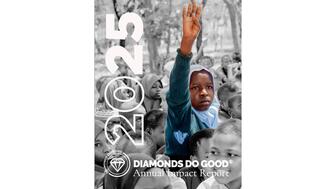
The annual report highlights how it supported communities in areas where natural diamonds are mined, crafted, and sold.

Footage of a fight breaking out in the NYC Diamond District was viewed millions of times on Instagram and Facebook.
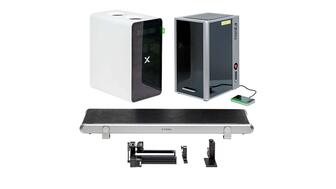
The supplier has a curated list of must-have tools for jewelers doing in-house custom work this year.

The Signet Jewelers-owned store, which turned 100 last year, calls its new concept stores “The Edit.”




